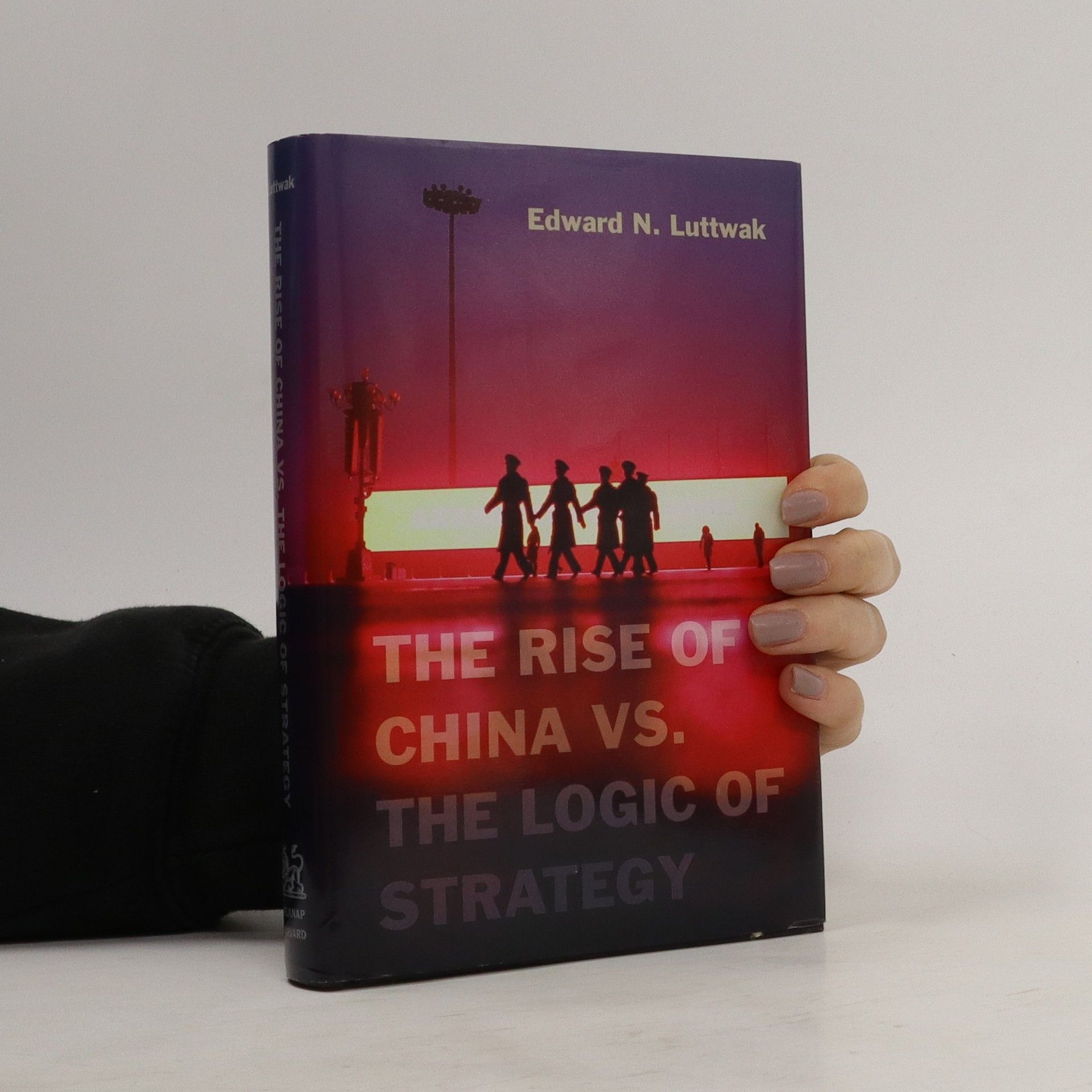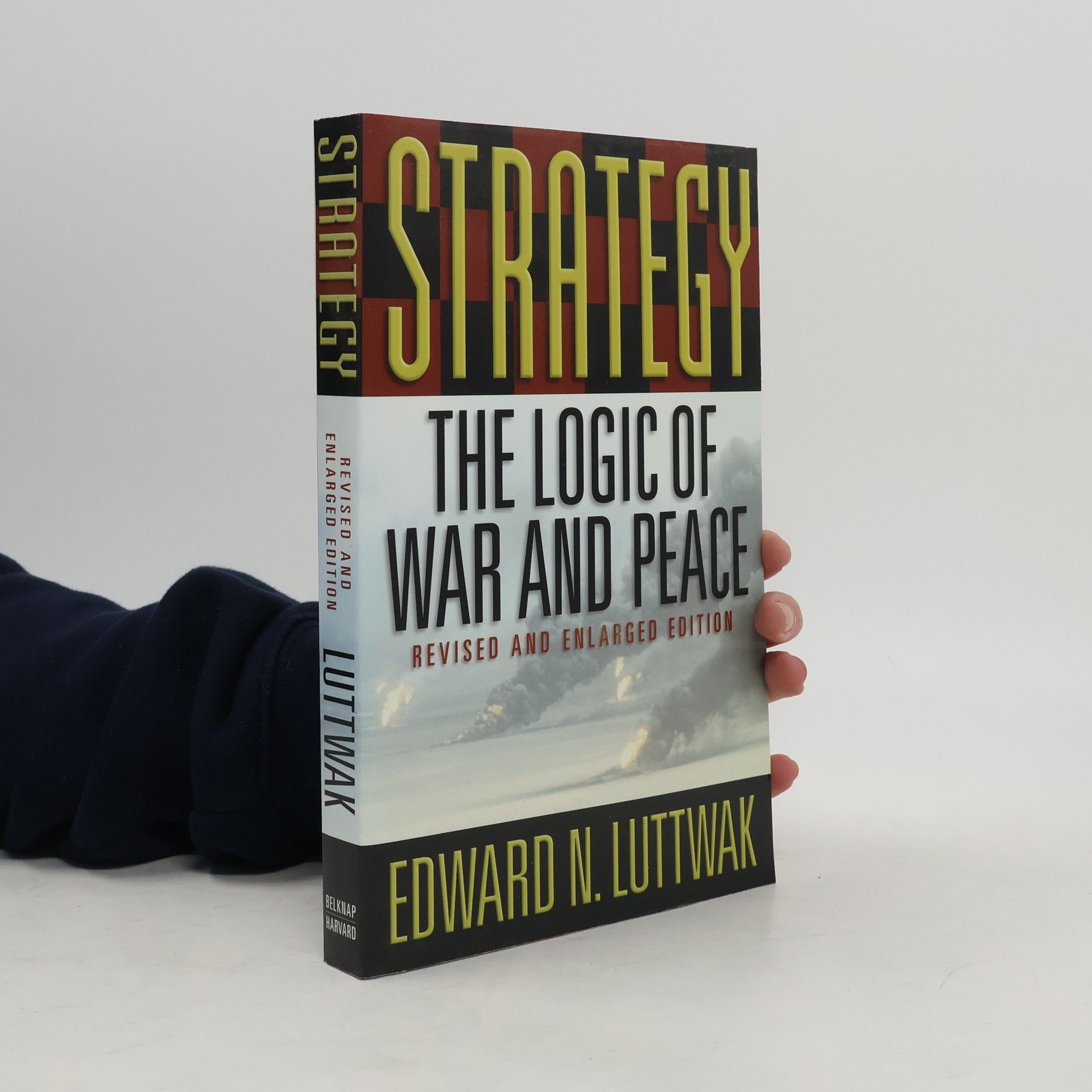The Grand Strategy of the Roman Empire
- 296bladzijden
- 11 uur lezen
This illuminating book remains essential to both ancient historians and students of modern strategy.
Edward Luttwak is een vooraanstaand strateeg, politicoloog en historicus wiens werk zich verdiept in de complexiteit van militaire strategie, geschiedenis en internationale betrekkingen. Zijn geschriften worden gekenmerkt door scherp analytisch inzicht in de essentie van oorlogsvoering en vredesstrategieën. Luttwak bezit een diepgaand begrip van geschiedenis en internationale aangelegenheden, waardoor hij strategische principes uit het verleden kan verbinden met de dynamiek van de hedendaagse wereld. Zijn werk biedt lezers een fascinerend perspectief op de logica van strategie en de wereldwijde implicaties ervan.







This illuminating book remains essential to both ancient historians and students of modern strategy.
Edward Luttwak's shocking 1968 handbook showed, step-by-step, how governments could be overthrown and inspired anti-coup precautions around the world. In addition to these instructions, his revised handbook offers a new way of looking at political power-one that considers the vulnerability of stable democracies after prolonged economic distress.
“If you want peace, prepare for war.” “A buildup of offensive weapons can be purely defensive.” “The worst road may be the best route to battle.” Strategy is made of such seemingly self-contradictory propositions, Edward Luttwak shows―they exemplify the paradoxical logic that pervades the entire realm of conflict. In this widely acclaimed work, now revised and expanded, Luttwak unveils the peculiar logic of strategy level by level, from grand strategy down to combat tactics. Having participated in its planning, Luttwak examines the role of air power in the 1991 Gulf War, then detects the emergence of “post-heroic” war in Kosovo in 1999―an American war in which not a single American soldier was killed. In the tradition of Carl von Clausewitz, Strategy goes beyond paradox to expose the dynamics of reversal at work in the crucible of conflict. As victory is turned into defeat by over-extension, as war brings peace by exhaustion, ordinary linear logic is overthrown. Citing examples from ancient Rome to our own days, from Barbarossa and Pearl Harbor down to minor combat affrays, from the strategy of peace to the latest operational methods of war, this book by one of the world’s foremost authorities reveals the ultimate logic of military failure and success, of war and peace.
Presents the grand strategy of the eastern Roman empire we know as Byzantine, which lasted more than twice as long as the more familiar western Roman empire, eight hundred years by the shortest definition.
As the world contemplates a future under Chinese dominance, Edward Luttwak focuses on China's own future. Known for his strategic insights, Luttwak posits that the world's most populous nation and second-largest economy may be on a precarious path. For nations whose ascent is evident, the universal logic of strategy dictates a choice between military and economic growth. China, however, is pursuing both simultaneously. Its military expansion and assertive foreign policy have already provoked resistance from neighboring countries, including India, Japan, and Vietnam, which collectively surpass China in population and wealth. If Chinese leaders do not temper their ambitions, they risk facing economic restrictions from these emerging coalitions. The challenge lies in balancing economic prosperity with military strength, a dilemma that could be difficult to communicate to the public. Furthermore, reliance on ancient strategic texts like Sun Tzu’s Art of War may hinder progress; while useful in internal conflicts, their tactics have alienated neighboring countries. To mitigate further global hostility, Luttwak suggests that Chinese leaders should adopt a more sustainable approach, prioritizing economic growth while exercising military and diplomatic restraint.
Why is Israel's relatively small and low-budget military also the world's most innovative, technologically and logistically? Edward Luttwak and Eitan Shamir look to the IDF's unique structure: integrating army, air force, and navy in one service, under an officer class constantly refreshed by short tenures, the IDF is built for agility and change.
Kniha Státní převrat. Praktická příručka, poprvé vydaná v roce 1968, šokovala čtenáře podrobným návodem na svržení vlády. Autoritářské režimy reagovaly zavedením preventivních opatření proti popisovaným strategiím. V roce 2016 autor vydal aktualizovanou verzi pro 21. století, která zkoumá zranitelnost stabilních demokracií během dlouhých ekonomických krizí. I když se svět dramaticky změnil, podstata státního převratu zůstává stejná. Autor provádí čtenáře fázemi puče, od plánování po sliby stability po převratu. Klíčovým krokem je nábor vojenských důstojníků, kteří povedou loajální jednotky, jež musí rychle obsadit vládní úřady a strategická místa v hlavním městě. Podpora armády je nezbytná k zamezení kontrarevoluce, zatímco masová podpora obyvatel není podmínkou; stačí pasivní přijetí. Ideální převrat je rychlý a bez krveprolití, zatímco krvavé pokusy obvykle selhávají a vedou k občanským válkám. Kniha analyzuje vojenské, sociální a kulturní podmínky pro úspěšné puče a stala se klasikou v politologii. Nová předmluva autora v českém vydání reflektuje jeho vzpomínky na invazi okupačních vojsk do Československa v roce 1968.
Fra le testimonianze della nostra civiltà, l'impero romano rappresenta il più riuscito esempio di governo sovrannazionale della storia: secondo Luttwak esperto di strategia militare ed ex consulente del Pentagono - la chiave per comprendere i successi dei Romani risiede nell'esemplare integrazione di diplomazia, forze militari e capacità politica e nell'impiego di sofisticate strategie di "intelligence" nei confronti dei nemici. Attraverso un'analisi rigorosa e sistematica della storia romana dal I al III secolo d.C, l'autore ripercorre le decisioni di grandi figure come Augusto, Adriano e Marco Aurelio, e portando alla luce sorprendenti somiglianze con il mondo contemporaneo - dalla pluralità di minacce da cui difendersi alla presenza di un permanente, benché limitato, stato di guerra - offre al lettore un saggio per interpretare in prospettiva le strategie politiche e militari dell'Occidente.